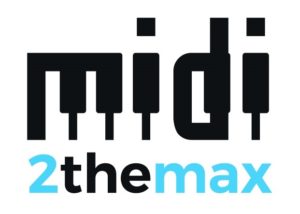MXUI Blocks for Max/MSP and M4L
110+ MIDI objects for Max!
super-optimized 100% abstractions, for Mac and Windows, to create MIDI-oriented Max applications and Max-for-Live devices – for Mac and WIndows
use built-in user interface or create your own
expand MIDI controller with dynamic split areas, multiple note layers, smart sustain, one-finger chords, harmonizers, velocity curves, ADSR and fading
quantize notes to one of the 400 supported scales from all over the world, create all sorts of harmonizers, generate melodies and chords
tame probabilistic chaos, create note generators, mutate melodies over time, add swing, and more
learn fast with 30 interactive lessons or download the manual
building blocks for your MIDI applications
MXUI Blocks is a collection of over one hundred abstractions to create
feature-packed MIDI applications and Max-for-Live devices in no time
prototype fast
MXUI Blocks includes 110+ Max abstractions designed to be loaded inside bpatchers • add to current patcher by pasting from object catalogue • built-in user interface provides access to all features, no need for Inspector window • resize and configure default user interface or use your custom layout and UI objects • to create both Max/MSP applications and Max-for-Live devices
MIDI programming made easy
MXUI converts incoming MIDI bytes into plain messages such as noteon, ctrl, or sysex • you can then process these messages using gate, routepass and other standard Max objects, which greatly simplifies programming • high-level MXUI abstractions can handle these messages to filter, transpose, delay and quantize notes, create chords, change velocity curve, create ADSR and DAHDSR envolopes, and a lot more
create modular MIDI pipelines
MXUI objects are modular: you can assemble them to create powerful pipelines for processing MIDI messages according to your needs • both low-level and high-level objects allow you to route MIDI messages by their type, channel, pitch, velocity, value, etc. • no worry about “stuck” notes: MXUI objects always route noteoff messages to the pipeline that processed the original noteon message
process music, not numbers
MXUI offers built-in support for 400 musical scales from all over the world • quantize notes to a scale or transpose them by specific diatonic intervals • create random melodies that sound “musical” by assigning weighted probabilities to scale degrees and melodic patterns • detect chords of any kind and send their notes to different pipelines • define a swinging metronome and quantize notes to your tempo • create keyboard layers with dynamic split points • randomize drum patterns by applying round-robin randomization to individual notes
get inspired!
MXUI comes with a manual and 30 interactive examples, most of which can work as the basis for more complex and powerful MIDI applications • learn how to handle multiple I/O ports • hold, sustain and harmonize incoming notes • generate random (and not-so-random) musical phrases • create self-morphing melodies • interpret mouse gestures • use velocity fade-in and fade-out to combine different timbres • take decisions based on the duration of notes and rests • save settings in presets and recall them using MIDI messages • and a lot more!
